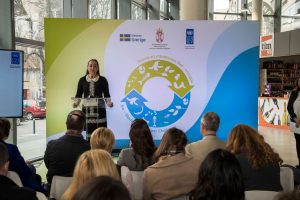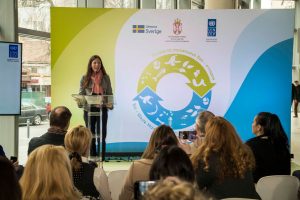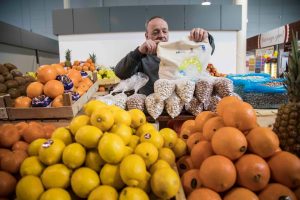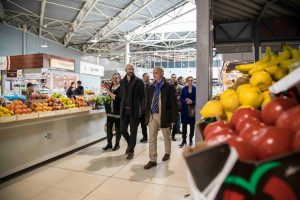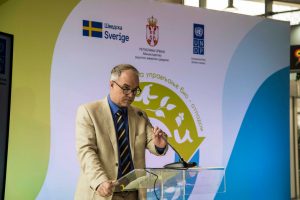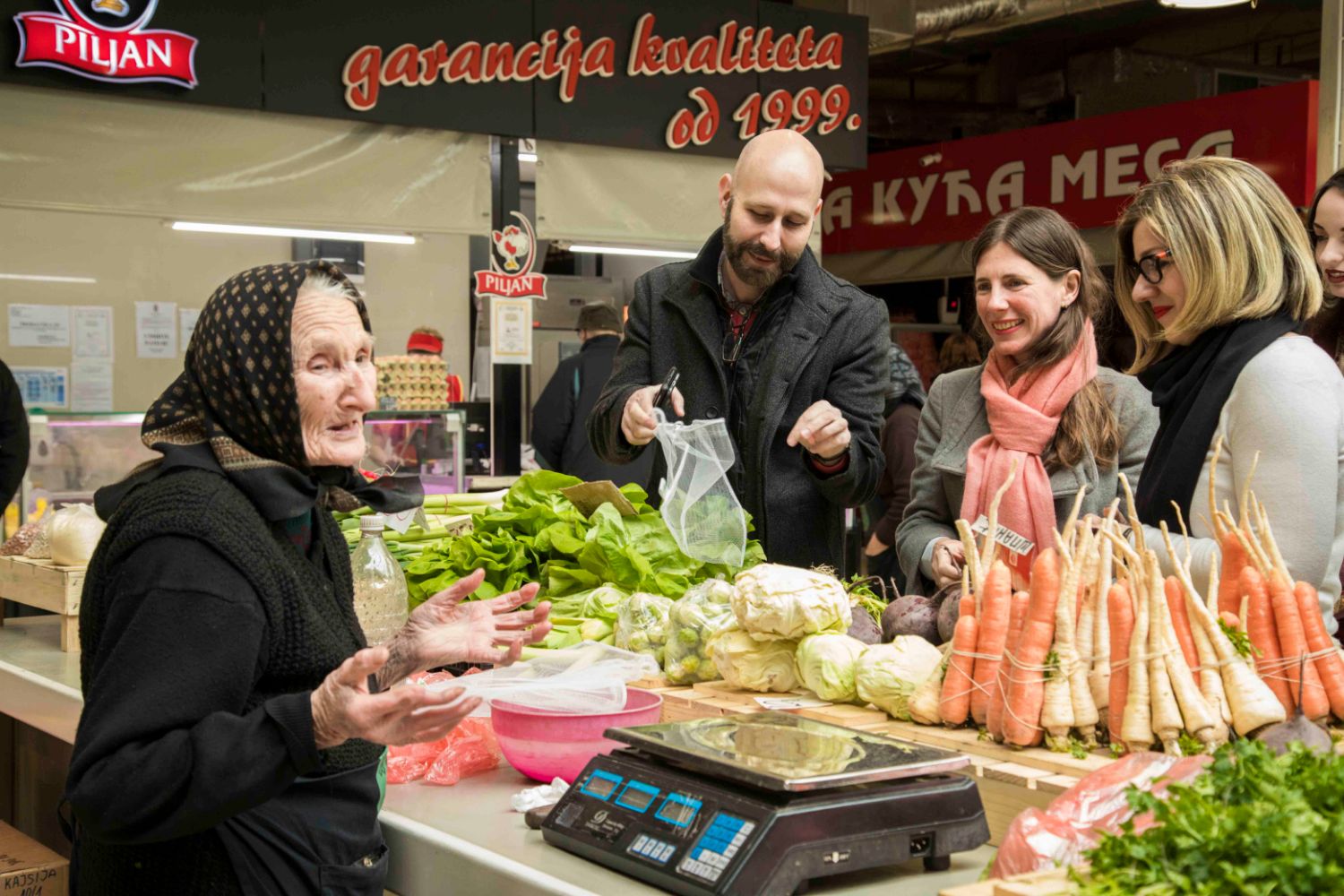Bio-waste Management Challenge Call officially open for applications
http://inovacije.klimatskepromene.rs
Today we launched the “Bio-Waste Management Challenge Call” at the Palilula Market, in partnership with the Ministry of Environmental Protection, and with the support of the Swedish International Development Agency (SIDA).
The purpose of this Challenge Call for proposals is to identify and support the implementation of innovative solutions for management of biodegradable waste, particularly food waste and kitchen waste, as well as green waste from parks and gardens. Such solutions will contribute to reducing emissions of greenhouse gasses (GHG) and increase the use of renewable energy sources.
The Challenge Call was officially opened by the Ambassador of the Kingdom of Sweden to the Republic of Serbia, H.E: Jan Lundin, the assistant minister of environmental protection Biljana Filipović-Đušić, and UNDP Resident Representative to Serbia Francine Pickup.
The Ambassador of the Kingdom of Sweden to the Republic of Serbia, H.E: Jan Lundin states that initiatives like this one, which encourage innovative solutions, are important for the environment, but equally for the Serbian economy, as they will create new jobs.
„Within the support that Sweden is providing to Serbia in order to accelerate its accession to the European Union, we are assisting Serbia to improve its system of waste management. Across the European Union and Sweden, there are many examples of best practice and successful business solutions to manage bio-waste. The project will allow us to exchange ideas, learn from each other“, stated Lundin.
The assistant minister of environmental protection Biljana Filipović-Đušić spoke about the activities that Serbia has undertaken to address the bio-waste management issues.
„We are developing a new Waste Management Strategy for the period 2020 to 2025, which is aligned with the five new EU Circular Economy Directives. It is expected to be adopted this year. Re-use of biodegradable waste is in line with the process of implementing circular economy in Serbia, following the best practice in EU countries and the EU acquis. This project will facilitate the establishment of infrastructure for bio-waste management, primarily through its collection and separation from other waste flows. “
She also mentioned that the EU countries have set the goal for 2035, and Serbia should aspire to it also – to recycle 65 per cent of waste, and to reduce the amount of waste being landfilled to less than 10 per cent.
„With the support of the Kingdom of Sweden and in cooperation with the Ministry of Environmental Protection, UNDP is assisting Serbia, through improved management of biodegradable waste, to reduce greenhouse gasses emissions and pollution, create new jobs and save resources. I hope that thanks to this Challenge Call we will collect many great proposals and that jointly we will contribute to collect and treat greater volumes of this type of waste, for the benefit of the economy, the environment and the citizens of Serbia,“ said Francine Pickup, UNDP Resident Representative to Serbia.
Better management of biodegradable waste contributes to achieving a number of the UN Sustainable Development Goals: ending poverty and hunger, ensuring good health, providing affordable and clean energy, sustainable consumption and production patterns, building sustainable cities and communities and preventing climate change, added Pickup.
According to the Food and Agriculture Organisation (FAO) data, one third of all food produced globally is wasted, and this quantity would be sufficient to feed almost a billion hungry people globally.
According to available data, 900,000 tons of bio-degradable waste is collected in Serbia from food industry waste, restaurants, supermarkets and individual households, along with the green waste from gardens and parks. About 70 per cent of that waste ends up in non-sanitary landfills, causing damage to the environment and increasing GHG emissions. Only 1 per cent of biodegradable waste is being collected and processed, and the loss of wasted resources costs Serbia approximately 50 million euros annually.
Bio-Waste Management Challenge Call is open for all applicants until 22 April 2020. Innovative ideas for more efficient management of food waste and green communal waste can be submitted by local governments, public enterprises, scientific research institutions and civil society organisations. The selected teams will work on their solutions with professional mentors, and the best five will receive co-financing in order to implement their ideas in practice. They will also participate in study tours to Sweden, where they will hear first-hand about the best European examples.
The project „Climate Smart Bio-Waste Management Challenge” and the public call for innovative solutions is initiated by the UNDP, in cooperation with the Ministry of Environmental Protection and financial support of the SIDA. For more information visit: https://inovacije.klimatskepromene.rs/en/application/
